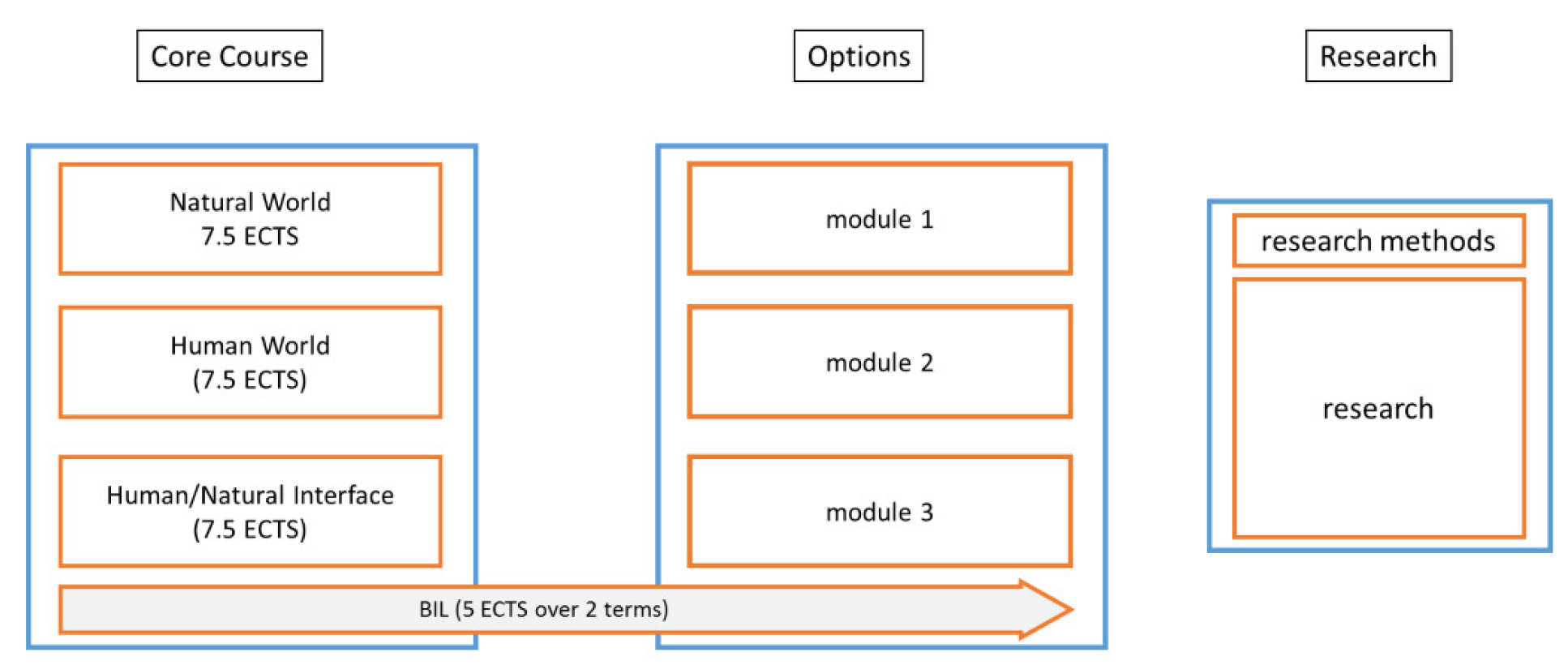Further information
The MSc in Environmental Technology provides the highest standard of knowledge and skills development for environmental specialists. Through the course, students acquire a diverse range of discipline-specific problem-solving frameworks for tackling contemporary environmental issues. A major emphasis of the course is on the way that environments function and on the compatible tools, alternative technologies and policies for sustainable environmental management. MSc Candidates also learn to appreciate that successful projects depend, at least in part, on belonging to a network of experts aiming to advance personal and collective environmental goals. We emphasise a friendly and supportive learning environment.
The course combines the natural and social sciences, engineering and business in a truly interdisciplinary manner, providing a foundation for graduates to demonstrate their ability to identify and resolve environmental and sustainability issues in a holistic way. This broad training is followed by an in-depth education in many specialised areas. The specialist options in the second term are designed to cater to a variety of individual interests and career requirements.
 Programme learning outcomes
Programme learning outcomes
On completion of the MSc Environmental Technology programme you will be able to:
- Demonstrate a broad understanding of sustainability from a range of perspectives relevant to environmental technology
- Critically engage with a broad range of appropriate literature
- Critically engage with a range of quantitative and qualitative research methods
- Critically select from and use a range of problem-solving strategies and tools to tackle complex and unfamiliar ill-structured problems in a self-directed manner
- Gather, analyse, synthesise and critically evaluate appropriate information relevant to environmental technology and sustainability
- Critically assess evidence of impact from current sustainability policy and practice, and anticipate future risks in the context of evolving sustainability challenges
- Draw out original insights and develop creative solutions to sustainability problems
- Take responsibility for decision making, taking into account the trade-offs and ethical considerations inherent in decision-making
- Communicate effectively to a range of audiences using a variety of media
- Manage your own development in a range of appropriate transferable and professional skills
- Take responsibility for your own learning and develop confidence in your own abilities to tackle complex sustainability challenges.
The programme is currently only offered as a full-time (Mode J9UF) one year course. There is a a specific part-time (J9UF24) two-year course with an industrial placement for one successful candidate per year who applies to this programme through the Integrated Water Management Option. Both lead to the MSc degree and the Diploma of Imperial College (DIC). More information is provided in the CEP MSc Programme Handbook and Course Specification.
Further information about the course structure
Students complete the Core Course in the first term (October-December) which comprises taught modules, a small group seminar series, and continuous course work assessment. Environmental policy seminars conducted by external speakers also occur throughout the first and second terms. The Core Course emphasises contemporary policy debates through a number of cross-cutting themes: climate change and energy, international development, sustainability and health, and biodiversity. The Core Course Directors is Dr Caroline Howe.
The core course is presented as four main modules:
The Natural World
The Natural World module seeks to provide the ecological, scientific and technologic basis and context for environmental challenges. It exposes students to the core principles necessary for understanding the natural world and environmental problems, including ecology, environmental pollution and control, natural resource management and biodiversity.
The Human World
Environmental sustainability is enabled or constrained by policy, regulations, laws and economics, and through governance created by multiple stakeholders – government, business, communities and society at different scales. This module presents aspects of these socially-oriented disciplines to provide the core principles for understanding the social basis for many environmental problems and demonstrate how the use of the environment can be influenced by well-designed tools and management policies.
The Human-Natural World Interface
Becoming an interdisciplinary learner and understanding the interactions between the natural and human worlds is at the heart of environmental studies. This module is presented as a series of problem-based case studies, supported by small group seminars and policy seminars. This allows students to critically understand and tackle contemporary environmental and sustainability problems.
Becoming an Independent Learner (BIL) module
At Master's level, you are expected to develop as an independent learner, taking responsibility for your own education. You need to be able to understand and plan for your future and be resilient in the face of any personal or professional setbacks. This module provides you with personal, transferable, professional and analytical skills necessary to become an independent and life-long learner. It extends over the two taught terms and supports the independent research project at the beginning of the third term when it culminates in an assessment research proposal for your summer term research project. You can think of this as the ‘long, thin module’ because it runs through the year to support your learning, alongside the Core Course and the Option terms.
Learning outcomes for the core course
On completion of the Core Course, you will be able to
- appreciate the interdisciplinary nature of sustainability
- examine critically the breadth of subjects covered
- integrate and apply knowledge across disciplines with confidence
- apply the fundamental principles underpinning the human and natural world and their interactions to solve sustainability problems.
- engage in group learning and communication
- solve problems in a skilled and confident way, independently and as part of a team
- demonstrate confidence and efficiency in acquiring and applying new skills and knowledge
Core course assessment
The Core Course is assessed using a combination of written, group and online assessments. Further details are available in the Course Specification.
Competence Standards document
Competence Standards for all PGT Centre for Environmental Policy Degree
Contact us
Terms and conditions
Important information that you need to be aware of both prior to becoming a student, and during your studies at Imperial:
